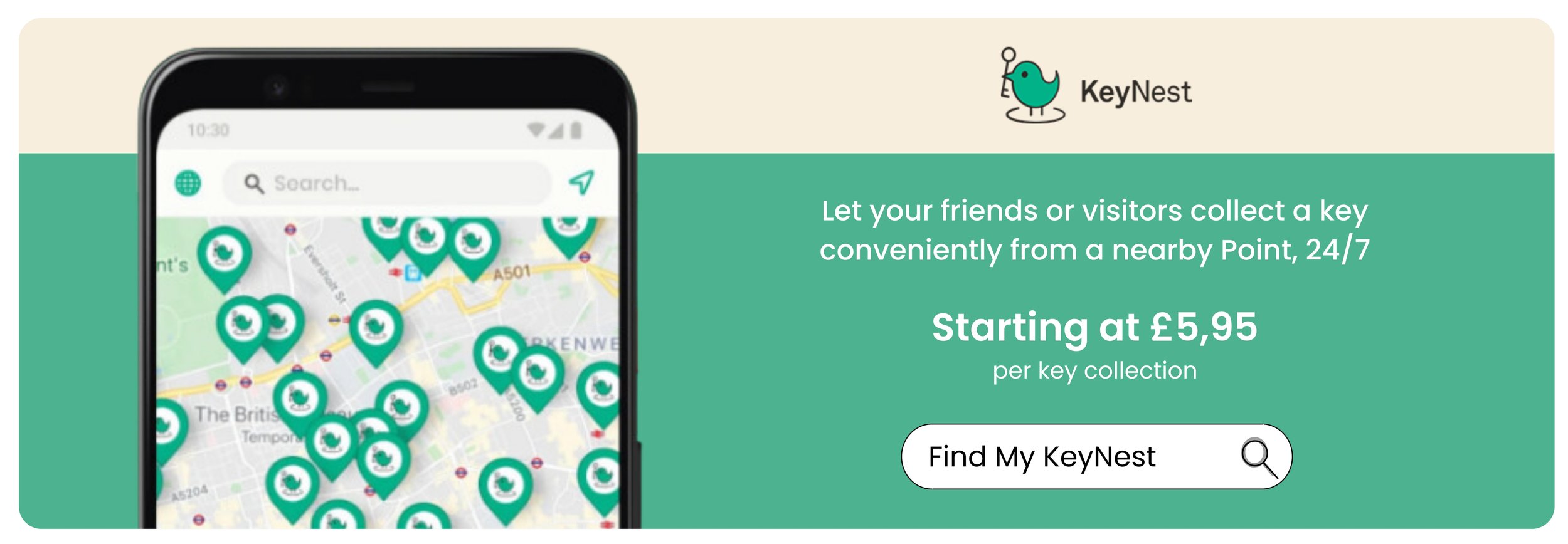Over 1500 key exchange locations nationwide
Airbnb Management: Understanding Host Regulations At Bath This 2025
Short-term rental hosting in Bath has become a popular way for a homeowner and his Airbnb property to generate rental income while hosting guests with charming, flexible accommodation options. However, with its status as a UNESCO World Heritage City, Bath has unique regulations that hosts must adhere to.
Understanding these rules is crucial to avoid fines, legal issues, or even losing the ability to host. Bath’s regulations aim to balance and have benefits of tourism with the city’s historic preservation ensuring that residents in long-term rental homes and guests coexist harmoniously. From licensing requirements to planning permissions, hosts need to be well-informed.
Changes to holiday letting hospitality rules are also on the horizon potentially affecting how hosts operate since the past 2023 and beyond. Navigating these regulations might feel daunting, but staying compliant can secure long-term success and guest satisfaction.
This guide breaks down the key areas of rental hosting regulations in Bath, including licensing, taxes, and planning permissions. Whether you're a new or seasoned host, understanding these points will help you navigate the process confidently. Read on to ensure your Airbnb meets all legal requirements in this historic city.
Current Licensing Requirements For Airbnb Hosts In Bath
The city of Bath enforces specific licensing requirements for holiday lets to regulate the growing short-term rental market. Understanding these rules is the first step to hosting legally and a vital knowledge for managing a property in Bath. Licensing aims to ensure properties meet safety standards, keep your property from harm, protect residents and preserve the city’s cultural and residential balance.
While not all holiday rentals require licenses, properties operating as commercial short-term rentals may need additional permits. It’s important for hosts to clarify whether their property qualifies as a short-term let or a business entity. Failure to obtain the correct licensing can result in fines and forced closure of the listing.
Key Takeaways To Know:
Mandatory Licensing: One of short-term rentals rules is to require specific licenses depending on property usage and rental frequency.
Ensure The Safety Compliance: Ensure your property owners meets fire safety with proper number of fire extinguishers, carbon monoxide detectors, health, and building health and safety standards.
Commercial vs. Residential Use: Commercial rentals may require a separate permit to operate.
Regulation Updates: Stay aware of changing rules as councils regularly review Airbnb-related policies.
Avoiding Fines: Operating without a license could lead to fines or suspension of your listing.
Navigating Planning Permissions For Short-Term Rental Property In Bath
In Bath, to secure and apply for planning permissions is quite essential and mandatory registration for rental hosts particularly for entire home rentals or properties undergoing changes. Holiday lets in certain areas may require planning permission to Bath and North East Somerset Council to ensure compliance with local regulations for rental properties.
This is especially important for properties located in residential neighborhoods where over-tourism and noise concerns arise. Hosts converting homes into holiday rentals must determine if a change of use application is needed. Failing to gain the necessary planning permissions could result in penalties or enforcement actions. This is to balance the ratio of housing availability and affordability.
Key Insights To Know:
Change of Use: Renting entire homes for short-term lets may require a change-of-use application.
Conservation Zones: Properties in protected areas must follow strict planning rules.
Residential Concerns: Planning permission is needed to address noise and over-tourism complaints.
Council Inspections: Planning departments may inspect properties to ensure safety and compliance.
Penalties: Non-compliance can result in fines and legal notices to cease operations.
If you want to rent out your entire property for short-term rentals in Bath, you need planning permission from the local council. This requirement applies to properties located in designated areas such as the city center and some residential neighborhoods.
However, if your property does not require planning permission, landlords in Bath can enjoy relative freedom in terms of short-term rentals regulations. It's best to check with the Bath and North East Somerset Council to find out whether your property requires planning permission.
Understanding Taxes And Fees For Short-Term Let At Bath
Rental hosts in city must comply with specific local laws of tax regulations, which include income tax, council tax, and potential VAT obligations. Hosts earning income through short-term lets are legally required to declare this to HMRC.
Additionally, properties listed on Airbnb housing and communities may be liable for council tax or business rates, depending on how often they are rented. Hosts should also be aware of the Rent-a-Room Scheme, which offers tax relief for earnings up to £7,500 annually.
Properly understanding and managing taxes ensures that hosts avoid penalties and stay compliant.
Key Points to Know:
Income Tax Declaration: Earnings from short-term lets must be reported to HMRC.
Council Tax or Business Rates: Properties may be reclassified based on rental frequency.
Rent-a-Room Scheme: Earn up to £7,500 annually occupancy tax free when letting part of your home.
VAT Requirements: If earnings exceed £85,000 annually, VAT registration is mandatory.
Avoiding Penalties: Failure to report income can result in audits and fines.
Property Insurance For Airbnb Hosts At Bath
Having the right property insurance is vital for Airbnb hosts in the city of Bath to protect themselves, their property, and their guests. Standard home insurance policies often don’t cover short-term rentals, which leaves hosts exposed to significant risks. Specialized short-term rental insurance ensures coverage for guest-related damages, accidents, and unexpected events.
For hosts in the city of Bath, where many properties hold historical value, additional coverage for structural protection might also be necessary. Understanding what is and isn’t covered under your current policy is critical to avoid costly surprises. Investing in comprehensive property insurance can safeguard your Airbnb business while maintaining peace of mind.
Key Points to Know:
Standard vs. Short-Term Insurance: Standard policies may exclude Airbnb-related incidents, requiring specialized short-term rental coverage.
Guest Accidents: Insurance protects hosts from liability if guests are injured on the property.
Damage Coverage: Specialized policies cover accidental or malicious damage caused by guests.
Historic Property Protection: Hosts in Bath with older properties should ensure coverage for repairs that comply with conservation rules.
Peace of Mind: Proper insurance helps hosts focus on providing excellent guest experiences without fear of unexpected costs.
Lastly, having appropriate insurance cover for the property is essential, such as public liability insurance, which covers hosts in case a guest is injured or their property is damaged during their stay. Airbnb's Host Protection Insurance provides liability coverage for hosts, but hosts should also consider additional insurance coverage: https://www.airbnb.co.uk/host-protection-insurance
Common Challenges For Airbnb Hosts & Local Regulations In Bath
Running a successful Airbnb in Bath comes with its own set of challenges. These issues often stem from balancing guest expectations with regulatory compliance. One common problem is navigating planning permissions and licenses, as requirements can be complex and time-consuming.
Additionally, local residents may raise concerns about noise, parking, or over-tourism in residential neighborhoods. Hosts also face difficulties managing taxes, particularly when rules around income declaration are unclear.
Lastly, staying up to date with evolving short-term rental regulations can be overwhelming for hosts juggling multiple priorities.
Key Insights To Know:
Planning Permission Delays: Applications can be lengthy and complicated.
Resident Complaints: Noise, waste, and parking issues can cause disputes with neighbors.
Tax Confusion: Hosts often struggle with understanding property's income tax and council tax obligations to local authorities.
Evolving Regulations: Policies for short-term lets are regularly updated with new regulations.
Guest Expectations: Maintaining a balance between guest satisfaction and legal compliance is challenging.
How Bath’s Regulations Compare To Other UK Cities
Bath’s short-term rental regulations share similarities with other UK cities but also feature unique considerations. Cities like London and Edinburgh have stricter limits on the number of days a property can be rented annually. In contrast, Bath places a strong emphasis on maintaining its heritage, which influences planning permissions and conservation rules.
Other cities may focus more on housing shortages and implementing licensing schemes to regulate short-term lets. For hosts operating in multiple locations, understanding these distinctions is critical to staying compliant.
Key Points to Know:
Bath’s Unique Rules: Planning permissions prioritize preserving the city’s historic status.
London: Properties cannot exceed 90 days of short-term letting without a permit.
Edinburgh: Hosts must obtain a mandatory license to operate short-term rentals.
Conservation Focus: Bath regulations place stricter controls on protected buildings and areas.
Shared Goals: All cities aim to balance tourism with local community interests.
In Retrospect
Understanding and complying with Airbnb regulations in Bath is essential for hosts looking to run a successful short-term rental. With its status as a historic city, Bath’s regulations focus on preserving its unique character while managing tourism growth. Licensing, planning permissions, and tax obligations are areas that hosts must carefully navigate to avoid penalties and disputes.
Staying informed about current and future regulations ensures that hosts operate legally and contribute positively to the local community. While the process may seem complex, compliance helps maintain a professional, trustworthy listing that guests will appreciate. Hosts who take the time to meet these requirements will enjoy greater peace of mind and long-term success.
As regulations continue to evolve, staying proactive and adaptable is key. Whether you’re new to hosting or a seasoned property manager, following these rules will ensure your Airbnb thrives in Bath’s competitive market.
About Us: KeyNest
It is vital for any hosts to sustain an efficient key management access to ensure your listing gets maintained in the Airbnb platform. That is why KeyNest, a leading smart key exchange service, is designed to simplify and secure the management of property access for hosts, property managers, and guests. With a network of thousands of partner locations worldwide, KeyNest ensures that keys are safely stored and easily accessible 24/7, providing a seamless solution for short-term rental hosts, including those on platforms like Airbnb.
Since its inception, KeyNest has revolutionized how property access is handled, eliminating the need for in-person handovers and providing an efficient alternative to traditional lockboxes or smart locks. Trusted by property managers across the globe, KeyNest's robust system ensures keys are always secure while maintaining accessibility.
Want to know more about KeyNest?
KeyNest offers you a convenient service for storing and exchanging your property keys. You can drop off a key at any of the 7,000+ locations in our network, so there’s one such Point located next to your property.
Guests, cleaners or contractors can then collect the key securely from a KeyNest Point or KeyNest Locker which is usually open 24/7. You'll be notified each time the key is picked up or returned, and you can even customize check-in and check-out times. By leveraging technology and a global network of locations, KeyNest continues to redefine property management, offering solutions tailored to meet the evolving needs of the rental market..
KeyNest has an ever-expanding global network of locations located just minutes from your property. To find out more you can contact us.
Neil Beltran 20 December 2024





